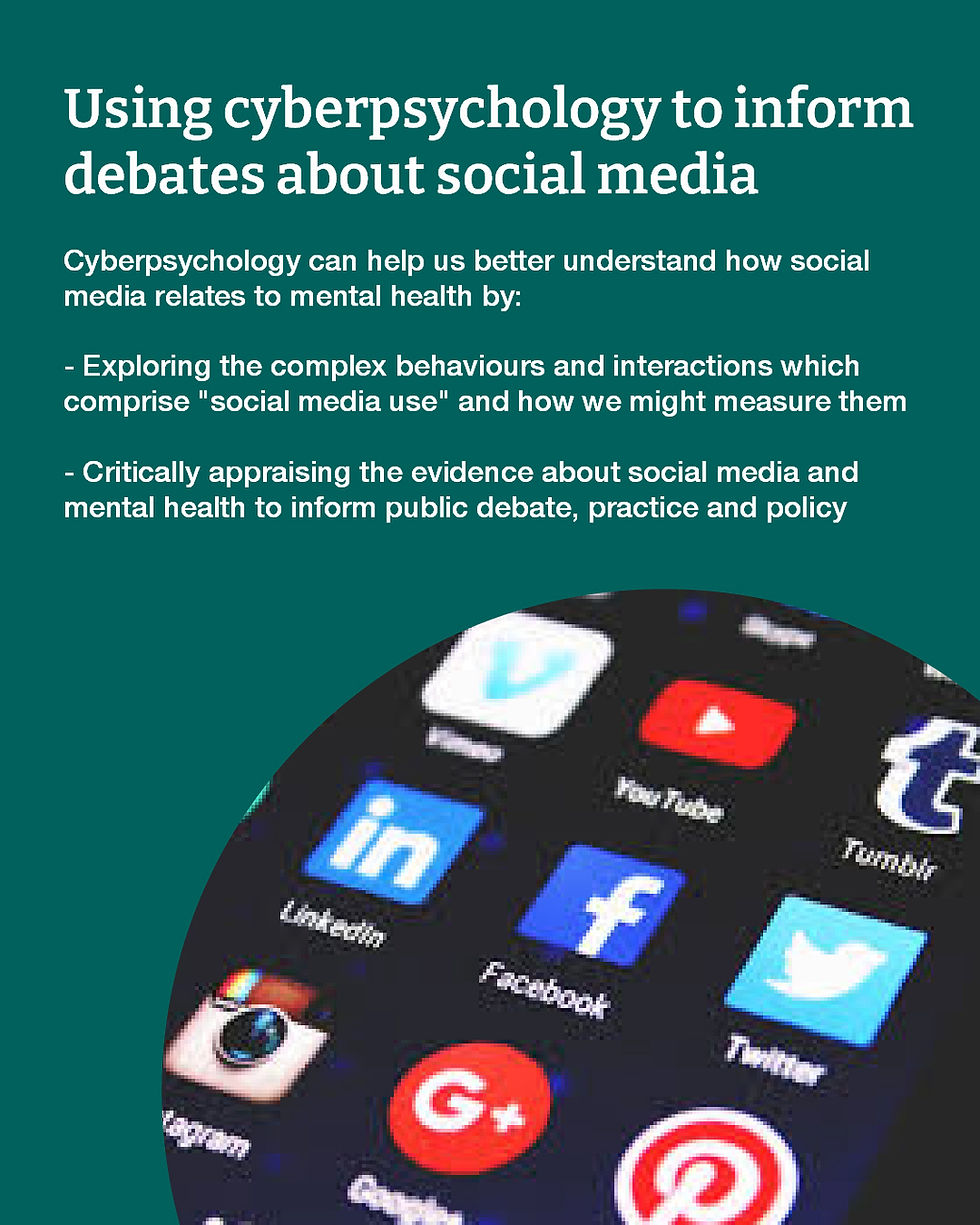What psychology can tell us about online information-seeking
- LindaKKaye

- Feb 14, 2024
- 3 min read
With calls for better regulation of social technology companies to reduce harmful content reaching young people, the UK Online Safety Bill is spear-heading efforts to move forward this agenda. However, there are nuances to recognise within this complex issue. I reflect on the psychology of information-seeking and behaviour, and how these principles might relate to search engine regulation.
Internet search engines and search functions within social media platforms are enormously helpful for us to selectively seek-out information which helps satisfy our immediate needs or curiosities.
Here are typical motives associated with information seeking:
how information can help direct action
how information might relate to our mood (or our intentions towards changing it)
how information relates to concepts we might think about
We use these motives as a guide to determine whether or not sought-out information is of value to us. The attraction of search engines is, of course that they offer timely and low-cost access to information. Whilst retrieving information might fulfil one or all of the above motives and therefore be deemed of value for a specific user, any behavioural actions which derive from this might vary in the societal value afforded to them.
Let's take an example
Let’s take the example of information-seeking on the topic of “smashing a car window”. In terms of having value for directing behaviour, information sought here could give a user know-how on how to do this effectively. In one scenario this might help them know how to do this to steal a car, but in another scenario might help them rescue a dog from a car on an extremely hot day. Although the information has directed an equivalent behaviour and thus been of value to the user in both scenarios, one of these has a higher societal value than the other. Therefore the issue is not always with the search term itself, but the semantic concepts which might be associated with it. In this case, is this term more closely associated with “helpful” and “compassionate” or with “theft”, and “instrumental”?
From a regulation point of view, this supports the need for more careful semantic coding of search terms at the programming level and how they relate to other words, concepts or sentiments. This can involve varying the semantic closeness of concepts so that less favourable ones are less discoverable.
What type of knowledge is being sought?
When thinking about how information-seeking might hold value for directing action, we need to recognise that information can vary in respect of being declarative (“know-what”) or procedural (“know-how”) knowledge. In the case of “smashing a car window” this relates to “know-how” more so than similar terms such as “types of car windows”, which would be more the “know-what”. Therefore, search terms and results which provide more procedural types of information are likely to hold more value for directing behaviour (irrespective of how desirable this behaviour might be deemed to be) in contrast to declarative information.
There are perhaps implications here for how search engines can be programmed to determine the semantic closeness of verbs or adverbs with less favourable concepts, thus to reduce their discoverability.
What about image-based social media?
Image or video-based social media platforms (e.g., Instagram, TikTok) often provide procedural information (e.g., TikTok dance crazes), which can conceivably direct action. Although the causal role of exposure to social media content on behaviour remains hotly debated, video content with procedural information depicting certain behaviours, might be considered a factor which directs users to imitate behaviours.
However, we should acknowledge the role of user agency here. My own research for example, indicates that adolescents are highly selective in their observational behaviours on social media platforms such as Instagram. For example, they use search functions on these platforms to find specific accounts and types of content as a means of social monitoring. This suggests that they are well attuned to knowing whom or what they wish to seek out, perhaps as a means to better understand how this information relates to their own actions, both online and offline. In this way, I would argue we are far from being simply passive consumers of content.
Finally, psychological research suggests that we are more likely to imitate observed behaviours if we have high self-beliefs in our abilities to undertake them. Therefore these types of psychological factors are important to consider when predicting whether seeking out and/or observing “know-how” information online will actually direct behaviour.
This serves as a reminder that irrespective of the steps we can take at the technology or policy level, we need to remember that human behaviour is complex, and is predicted by a range of factors, not all of which can be easily regulated at the societal level.



Struggling with psychology assignments? Help with Psychology Assignment is the solution you've been looking for! Their expert guidance ensures thorough understanding of concepts and effective strategies to tackle assignments. I've relied on their support and witnessed significant improvement in my grades and comprehension. For anyone seeking reliable assistance in psychology assignments, Help with Psychology Assignment is the ultimate solution. Highly recommend